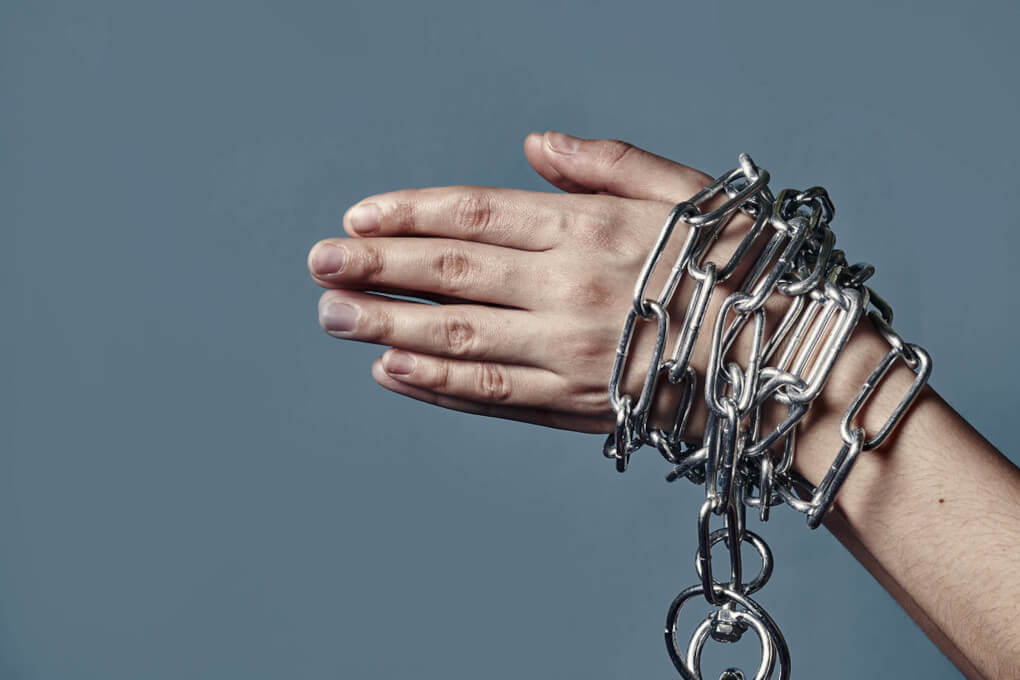In a codependent relationship, putting other people’s wants above your own can result in dysfunctional or even abusive actions on both sides. More healthy relationships can be cultivated, and there are techniques to bring about this change.
Explain the Nature of Codependence
When someone you care about is going through a tough moment, it is only human to want to help them as much as possible and be there for them. A genuine desire to help another person is admirable, but going to extremes in this regard might have unintended negative consequences for both parties involved.
In codependency, also called relationship addiction, one partner feels they must “rescue” the other by meeting all of their emotional and physical needs in a close relationship. Codependent people build their sense of identity by achieving this aim and taking on a selfless role within their relationships.
If you are the one who “enables” your partner’s addiction by shielding them from the repercussions of their behavior or covering up for them, you may be suffering from codependency. However, it can take several forms depending on the dynamics of the connection. Example behaviors of someone who is codependent include putting in extra hours at work, letting their partner control their social life, and sacrificing their happiness for the sake of their partner. This self-destructive habit is not exclusive to romantic relationships. Codependence is not limited to romantic partners; it can also exist among friends and relatives.
Negative repercussions of codependency can extend to both the dependent and the dependent’s primary caretaker. Any one of these situations could lead to the relationship becoming unbalanced or even destructive. Feelings of annoyance, resentment, or stress may arise as you begin to prioritize your partner’s needs over your own. You might even find that you are willing to put up with emotional, sexual, or even physical abuse. If your love relationship terminates or goes through a tough patch, you may experience a loss of self-worth because of how closely your identity is tied to that of your partner.
However, if you assist your partner’s substance misuse, gambling, or eating disorders, he or she may not seek therapy for these issues. You may be encouraging such actions. Instead, kids begin to rely heavily on you to take care of all of their requirements. Sometimes a significant other will get defensive or accuse you of being “clingy” if you try to exert any sort of control over them. This is why it’s so hard for those prone to codependency to sustain good, fulfilling relationships with others.
It’s encouraging to know that people who struggle with codependency can learn to replace negative behaviors with healthier alternatives. Altering your current way of thinking and behaving can have a positive effect on the quality of your relationships and your sense of self-worth.
Indicators of a Codependent Relationship

Professionals in the field of mental health have not yet agreed upon a uniform set of diagnostic criteria for codependency. On the other hand, there are a few telltale indicators that should never be ignored.
An Inability to Find Happiness or Fulfillment Outside of the Relationship
Maintaining relationships or enjoying activities on your own may be challenging if your sense of identity is so linked with that of your spouse, friend, or family member that you can’t imagine life without them. If your significant other does not want to go to a given event, you may choose to forego attending it with friends.
The Propensity to Overlook or Accept Detrimental Behavior From One’s Partner
You have developed the ability to laugh off your partner’s habit of insulting or putting you down. It’s up to you whether you want to protect your pals who speak up about your abusive partner or take the responsibility for them.
That Prospective Partner, in the Ideal Sense
The positive attributes of a spouse are often admired by the two people in a relationship. On the other hand, someone who is codependent may exaggerate their loved one’s good traits or fail to see the universal flaws in others.
Accepting and Condoning a Partner’s Bad Choices and Behavior
One such deception could be telling others that your partner’s addiction isn’t your fault, or excusing their actions. The person you care about won’t learn from their mistakes if you try to shield them from the consequences of their actions, no matter how well-intentioned your motives.
Taking Responsibility for One’s Behavior
You might try to manipulate your partner into doing what you want, but you won’t learn that the only person you have any real power over is yourself until it’s too late. It’s easy to fall for the illusion that dominating the other person will make you happy.
It is Wrong to Ignore Your Partner and Make Them Feel Unimportant
A part of you feels like you have to “fix” the other person and make them happy again. That’s why it’s so difficult to focus on anything other than the relationship—including yourself—without feeling bad.
Reluctance to Communicate Wants, Feelings, and Values Because of Fear of Argument
You could feel ignored or alone in the relationship, but you don’t want to say anything for fear of offending your partner. If the other person is engaging in behavior that you find offensive, such as bullying, you have the option of remaining silent.
Taking on More Responsibility Than is Fair
One strategy for avoiding conflict in a relationship is to always give in to the other person’s viewpoints. To avoid an argument, you and your partner may decide to apologize after one of you forgets to fill the dishwasher and the other takes the blame.
Taking on More Than One Should Be Expected to Handle
You might clean up after your partner in the hopes of gaining their praise, even if doing so causes you significant stress or takes up a substantial amount of your time. You may be able to make ends meet even if your incomes are roughly equal. The act of doing so places an undue burden on you while helping the other person out.
Worrying Excessively About What Another Person is Thinking or Feeling
You may worry excessively about your partner’s emotional state and what you can do to make them feel better if they are upset. Given your indifference to your own emotions, it’s likely that your mood will mirror your thoughts on how they are feeling.
Reasons Why People Rely on One Another

There is often a connection between one’s past experiences and addictive habits in romantic relationships. Past family relationships continue to have an impact on us even if we are oblivious to their presence. Similarly, the bond you shared as a child with your parents or primary caregivers might have an impact on your actions as an adult. Codependency can arise from a combination of experiences and circumstances. Your current sense of self, or how you evaluate yourself about others, is one such factor.
Dysfunctional Family Dynamics
Your familial relationships could be the source of your codependent behaviors. Various family relationships are more likely to have a damaging effect on a child’s mental and emotional growth.
A Household Where Everyone Routinely Puts Themselves Last
Picture this: a loved one in your family has a chronic ailment that needs constant care, such as a mental illness, physical illness, or addiction. Members of the family often put their own needs on hold to tend to a sick relative or shield an addict from the repercussions of their drug use. In such an environment, one could learn to prioritize the needs of others over their own identity.
Houses Where It’s Usual to Bury Your Emotions and Avoid Arguments
If you grew up in a home where abuse was common but never addressed, you can learn to bottle up your emotions and ignore problems as a defense mechanism. A possible cause of this is witnessing abuse at home and never speaking out about it. You may have been taught to keep quiet when confronted with a difficult situation, such as when you disagree with someone or are mistreated.
Meaningful Implications of One’s Connection Style
Your attachment style is heavily influenced by the relationship you made as an infant with your primary caretaker. Instability in your attachments can increase your chances of developing codependency issues as you become older.
Your insecurities in social interactions may have been fostered by your primary caregiver’s tendency to either be overly available or overly unresponsive to your needs. This form of relationship is characterized by an ambivalent attachment style, also known as an anxious-preoccupied attachment style.
- One’s likelihood of engaging in the following behaviors increases if they have this attachment style.
- Want to get closer to their spouse, but are worried about their partner’s loyalty to the relationship.
- Focus one’s complete and undivided focus on another person.
- The hazards to the relationship are real, but you should exaggerate your reaction to them.
- They need a lot of attention from their partner to feel safe and secure in the relationship.
- Have a hard time establishing boundaries because they get anxious when they have to spend time apart from their partner.
Those with this form of insecure attachment may attempt to calm their nerves by constantly seeking their partners’ approval and meeting all of their needs. They may also resort to manipulation in an attempt to exert power over their partner.
